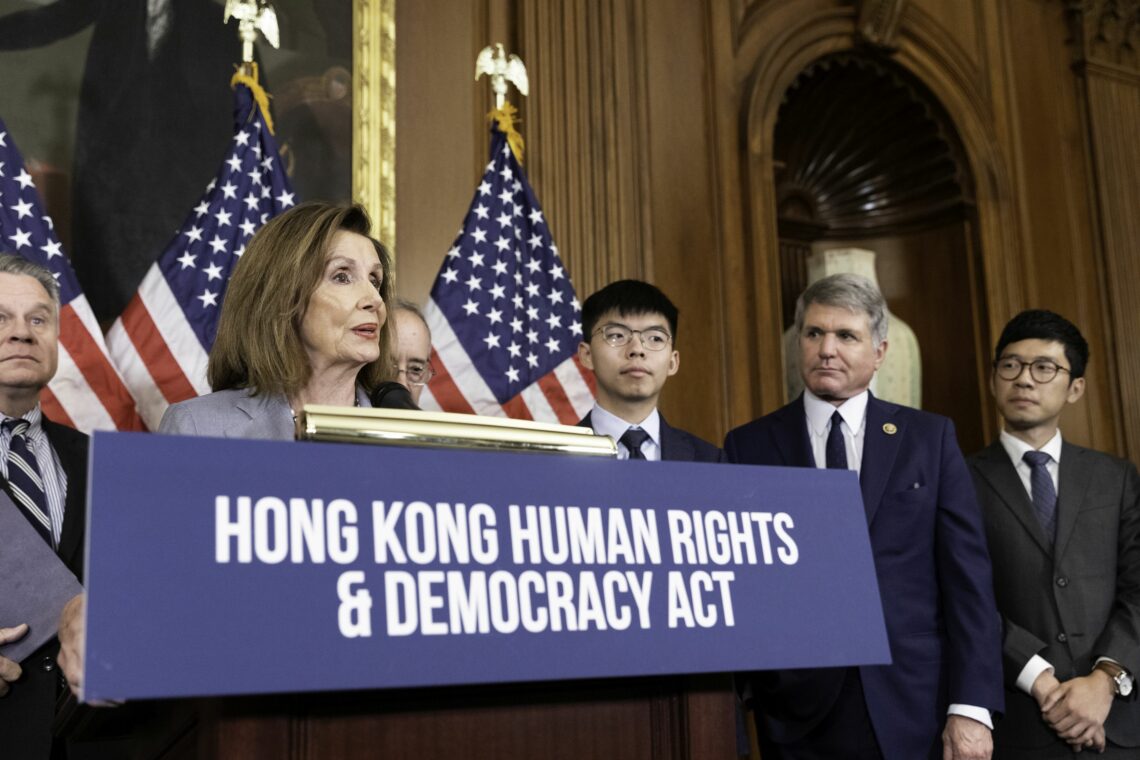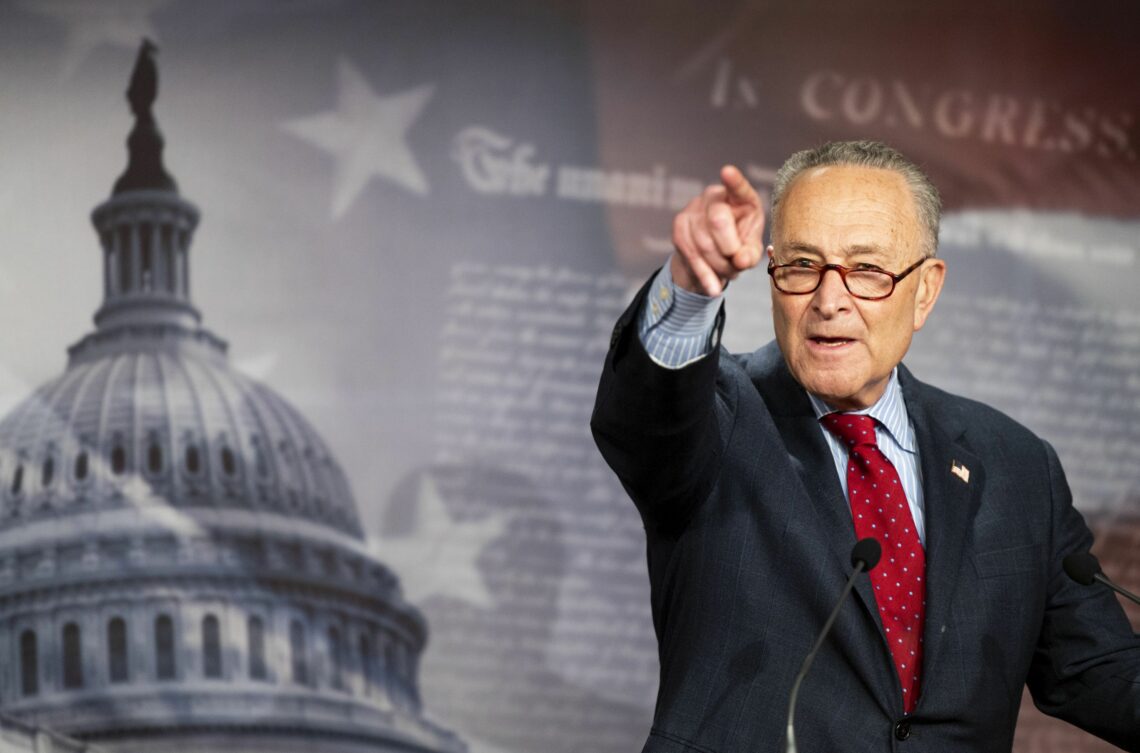Scenarios for the U.S. Congress’s stance on China
Both Democrats and Republicans in the U.S. Congress are critical of China. Now, with both houses in Democratic hands and President Biden in the White House, it is worth examining whether the U.S. legislature will continue down this more strident anti-China path.

In a nutshell
- Congress is considering stronger China legislation
- The Biden administration is in a better position to soften it
- Republicans will press the White House to be tough on Beijing
The last few years have seen an extraordinary level of China-related activity in the United States legislature. Nearly 300 bills concerning China were introduced in the last Congress, and almost 60 already in the current one, only three months into its two-year term.
What Congress does regarding China will play a major role in shaping U.S. policy. It can take three courses of action. First, it can continue on the path of the last two Congresses (2017-2020), addressing perceived gaps in administration policy in a piecemeal fashion. Second, it can pass sweeping legislation that asserts its hawkish positions. Third, it could cede authority on these issues to the executive branch.
China and the 116th Congress
During the administration of President Donald Trump (2017-2021), Congress passed several significant China-related initiatives. Among these were the Taiwan Travel Act, which encouraged government travel between the U.S. and Taiwan, and the Taiwan Assurance Act, which mandated a full review of Taiwan’s diplomatic treatment. The White House implemented both with gusto.
There were also:
- the Taiwan Allies International Protection and Enhancement Initiative (TAIPEI) Act, which encouraged U.S. support for Taiwan’s 15 official diplomatic relationships
- The Asia Reassurance Initiative Act
- The Tibetan Support and Policy Act
- The Uighur Human Rights Policy Act
Congress also passed an extraordinary trio of bills on Hong Kong that pushed the Trump administration to confront China’s defiance of its international obligation to maintain Hong Kong’s autonomy. Most significant were the complex rewrites of American controls on exports to China and inbound Chinese investment.
Scenarios
Scenario 1: Business as usual
Congress is most likely to continue in this hyperactive, albeit diffused effort. The president will continue to sign bills sent to him. The Biden administration, however, will be better organized than its predecessor in asserting its preferences. Allied with Democratic majorities in Congress, it will have more influence over which bills pass and what they contain.
The Biden administration will be better organized than its predecessor in asserting its preferences.
None of the above legislation involved debate and floor votes on amendments. The substance was worked out in private consultation or in committee. If this continues, legislation will require the broadest consensus to become law, and a determined minority could block its passage. So, where there may be differences between the administration and Congress, the White House can work with minorities to influence changes in the legislation. As a general matter, this will result in greater administration influence, leading to moderation and flexibility – as any administration is more cautious in its approach to China than the Congress it faces.
Thus far, the administration is taking a relatively tough stance on China. Suppose it changes its posture to prioritize U.S.-China cooperation on climate change or crisis management on the Korean Peninsula or in the Middle East. In that case, the White House will be in a good position to temper Congress’s reaction.
Scenario 2: Congress asserts itself
In February, Senate Majority Leader Chuck Schumer tasked eight Democratic committee chairs to produce China legislation. His intention was to address U.S. economic competitiveness, especially in science and technology.
There are three main pieces of legislation ready to be taken off the shelf. These include the 2020 America LEADS Act, which covers technology and a full range of other China-related issues; the 2021 STRATEGIC Act, which is shorter in length but focused on a broad set of topics, including relationships with allies; and Senator Schumer’s own 2020 Endless Frontier Act which would address science and technology by investing more than $100 billion in research and development. The first two of these have now been combined into one omnibus China bill. Beyond this, there will be legislation drafted by the other committees Senator Schumer has tasked.

The situation in the House is different. Last year, Republicans introduced a sweeping bill entitled the China Task Force Act, so named because it reflected the extensive work of a Republican-organized effort to examine the China challenge. That bill died in the House. At the time, China was a potent election year issue. Depending on which side one believes, either Republicans were trying to distract from President Trump’s controversial Covid-19 response, or Democrats were loath to give Mr. Trump a win on China going into the election. Either way, national presidential politics prevented any action on the bill.
This year, the demands of other business make House Democrats unlikely to initiate a grand Senate-like effort. Such bills will be introduced, but most likely, if it acts on a sweeping package, the House will wait to process a bill from the Senate. In the meantime, Speaker Nancy Pelosi appears interested in continuing the piecemeal approach of the previous Congress.
The assertive scenario involves both houses putting comprehensive bills on the floor and at least the Senate allowing for open amendment processes – instead of the closed, consensus-based way foreign policy bills have been considered in recent years. Such a process would strengthen Congress’s position vis-a-vis the administration because proposals would need only to secure simple majorities. They could not be blocked by small minorities acting on behalf of the president. In this scenario, Congress’s harder-line, less-flexible institutional approach to China prevails.
Scenario 3: A quiescent Congress
This scenario is the least likely because there is so much demand from members for Congress to act on China, not only for sound policy reasons but also for political reasons. China is now a hot election issue. In fact, across the board, even though the same party controls both the executive branch and legislative branch, Congress is in an aggressive mood. Case in point, in a comment on another set of issues, war powers – where the administration is cooperative – Democratic Senator Tim Kaine said, “We’re not playing ‘Mother May I.’ We’re going to do what we think is right.”
Republicans pressed President Trump on China and will not hesitate to do the same with President Biden.
The same logic applies to China. Both Majority Leader Schumer and Speaker Pelosi are China hawks. Senator Schumer is up for election in 2022, where China is sure to be an issue. He and other Democrats will want more to show than doing the president’s bidding. As for Republicans, especially in the Senate, they pressed President Trump on China and will not hesitate to do the same with President Biden.
Impact on policy
Whether for strategic interests or politics or a combination thereof, the Biden administration appears determined to hold a hard line on China. It has:
- Continued the Quadrilateral Strategic Dialogue with Japan, Australia and India
- Reaffirmed the Trump administration’s determination that Beijing is committing atrocities in Xinjiang
- Sanctioned Chinese officials over the country’s mistreatment of Uighurs and its crackdown in Hong Kong
- Engaged Taiwan
- Conducted naval demonstrations in the Taiwan Strait and in the South China Sea
- Renewed the Trump-era finding that Hong Kong is no longer sufficiently autonomous to be treated as such under U.S. law.
As laid out in the first scenario, current trends in Congress leave the administration in a position to continue along this line, albeit with the flexibility to shape the specifics and to pursue areas of cooperation with China. Congress’s ability to shift to a more assertive position will help keep any conciliatory impulse in check. A similar policy dynamic is at play in scenario three.
If Congress chooses to assert its prerogatives, in keeping with scenario two or some variation thereof, the Biden administration’s China policy will become more strident. This scenario will grow even more likely if Republicans take one or both houses of Congress in the 2022 midterm elections. If that happens, criticism from Congress will be unrelenting.








